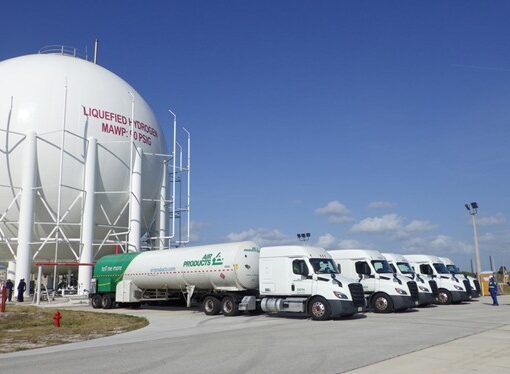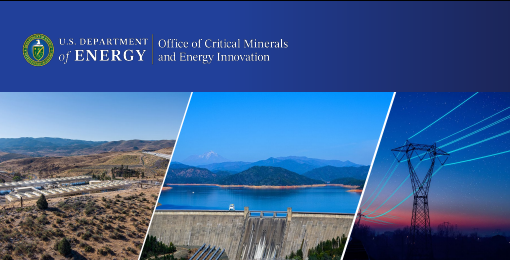From May 6 to May 9, 2024, the U.S. Department of Energy Hydrogen Program held the Annual Merit Review and Peer Evaluation Meeting, where the Hydrogen and Fuel Cell Technologies Office (HFTO) released its 2024 Hydrogen and Fuel Cell Technologies Office Multi-Year Program Plan (MYPP). Aligned with the priorities set in the U.S. National Clean Hydrogen Strategy and Roadmap, this plan provides a strategic framework for the development of the hydrogen fuel cell industry over the next several years.
The mission of the HFTO is to enable affordable clean hydrogen and fuel cell technologies for a sustainable, resilient, and equitable net-zero emissions economy. The MYPP aims to achieve this mission by growing the market for hydrogen and fuel cell technologies, overcoming current barriers to deployment, and driving further technological advancements, eventually allowing fuel cell and hydrogen technologies to play a large role in the development of a net-zero emissions economy.
The MYPP is presented in subcategories with specific pathways to reach various short-, mid-, and long-term goals. The subcategories and their priorities are as follows:

Clean Hydrogen Production
-
Affordable, efficient, and durable electrolyzers for GW-scale operations
-
Innovative approaches to clean hydrogen production besides electrolysis
Hydrogen Infrastructure Technologies
-
Affordable and reliable components for hydrogen transport and dispensing in heavy-duty
-
applications
-
Advanced hydrogen liquefaction and carrier distribution concepts
-
Low-cost vessels for high-pressure gaseous and cryogenic hydrogen storage
-
Innovative hydrogen storage materials for high-density, low-pressure storage
Fuel Cell Technologies
-
Efficient, durable, and cost-competitive fuel cells for heavy-duty use
-
Advanced materials and components for next-generation fuel cell technologies in diverse
-
applications
Systems Development and Integration
-
Transportation and hydrogen fueling demonstrations
-
Chemical and industrial processes integrating hydrogen technologies, focusing on
-
decarbonization
-
Energy storage and power generation including integrated and resilient hybrid energy
-
systems
Systems Analysis
-
Tools, modeling, and analysis to prioritize R&D and inform early-market deployments
-
Regional analysis to support energy transition planning and assess impacts
-
Integrated analysis to inform supply chain expansion and sustainable market growth
Safety, Codes, and Standards
-
Hydrogen component technologies safety, including materials compatibility, environmental
-
modeling, emphasizing near-term dispensing applications
-
Safety, codes, and standards with additional emphasis on bulk storage and large-scale
-
applications of hydrogen
The Hydrogen and Fuel Cell Technologies Office (HFTO) Multi-Year Program Plan focuses on several key initiatives to expand the scope of clean hydrogen and fuel cell technologies, highlighting their pivotal role in the decarbonization process. Expansion will be done through RD&D projects aimed at advancing the efficiency of hydrogen production, storage, and fuel cell technologies, as well as launching demonstration projects that will showcase the effectiveness of fuel cell technologies in various sectors, including transportation, industry, and power generation. Other expansion efforts will include various market acceleration strategies, public-private partnerships, workforce development/training, and international collaboration. These expansion efforts will put the HFTO on the right track to enhance the integration of hydrogen and fuel cell technologies into the economy.

Another main goal indicated in the MYPP is increased incorporation of stakeholder input, particularly in the key targets indicated, ensuring HFTO’s priorities are aligned with a broad range of perspectives and competitive with incumbent and emerging technologies. Some of the specific targets include:
-
Clean hydrogen production: $2 per kg by 2026 and $1 per kg by 2031
-
Electrolyzer systems (low temperature): 250 per kilowatt for low-temperature electrolyzers by 2026
-
Electrolyzer systems (high temperature): $500 per kilowatt for high-temperature electrolyzers by 2026
-
hydrogen dispensed for heavy-duty transportation: $7 per kilogram by 2028.
-
Fuel cell manufacturing for heavy-duty transportation: 20,000 stacks per year (single manufacturing system) by 2030
-
Fuel cell systems for heavy-duty transportation: $80 per kilowatt by 2030 (GovDelivery).
In order to put these plans into action, the MYPP emphasizes the importance of cross-cutting activities to exemplify the efficiency of hydrogen and fuel cell technologies in various fields. Cross-cutting can take place when multiple technology areas come together in research and development efforts. This holistic approach to the application of hydrogen and fuel cell technologies will ensure that advancements in one area will drive other areas forward.
Another way the HFTO plans to achieve goals is with the practice of systems analysis. The MYPP outlines the need for comprehensive systems analysis which will allow for easier decision making and research direction. This process will involve evaluating the potential impacts of new technologies on energy systems, economic performance, and environmental impacts. This information will help the HFTO create an optimal plan for the integration of hydrogen technologies into everyday lives.
The Fuel Cell and Hydrogen Energy Association applauds this outstanding plan. FCHEA and its members are ready and excited to support the Department of Energy in these efforts.



